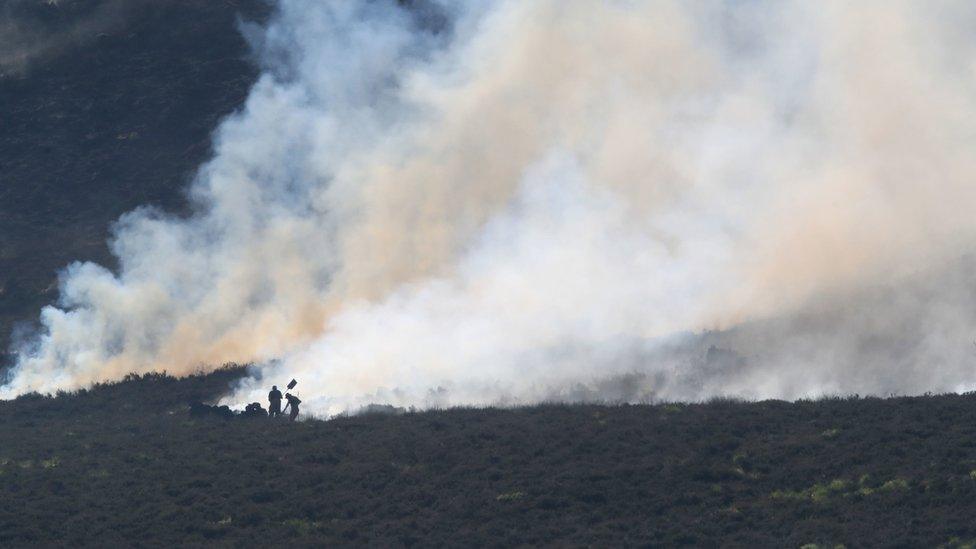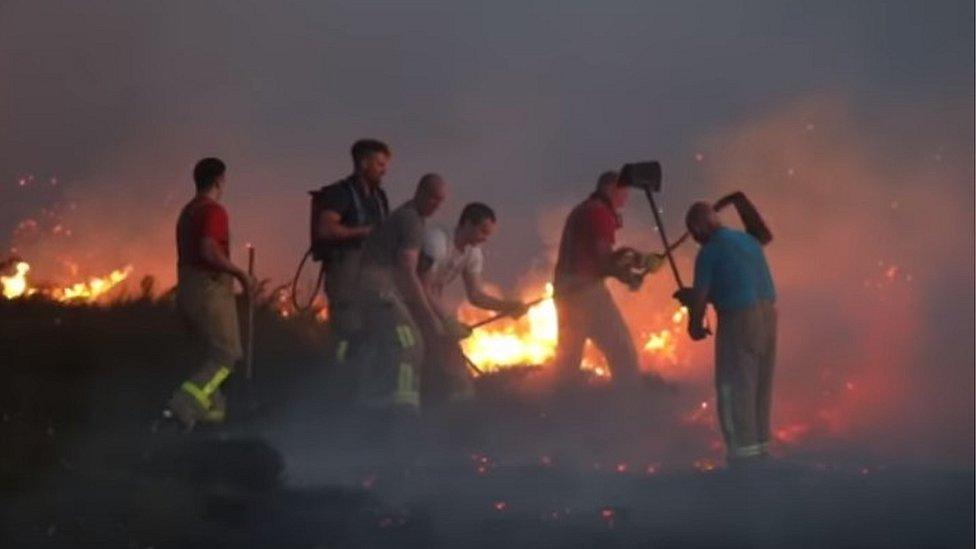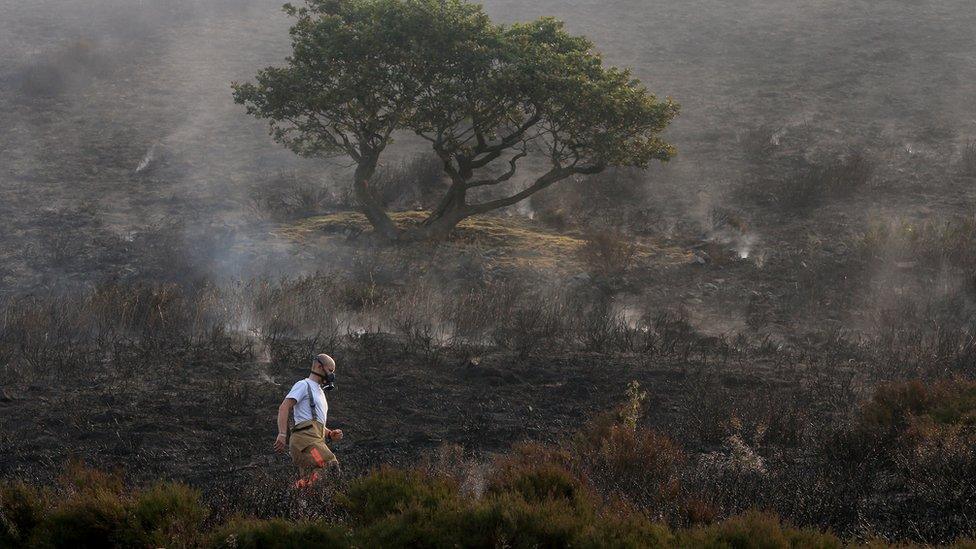The dangers of smoke inhalation
- Published

Firefighters tackle the wildfire on Saddleworth Moor
Moorland fires continue to burn on both Lancashire's Winter Hill and Saddleworth Moor in Greater Manchester, blanketing the region in smoke and ash.
So what can local people do to protect themselves and their families from smoke inhalation?
Smoke can irritate air passages, the skin and the eyes, leading to coughing and wheezing, breathlessness and chest pain.
It can also exacerbate asthma and, in some cases, the pungent smell and air pollution can cause headaches, nausea and dizziness.
On Sunday, a local man collapsed near the scene of the moor fires in Lancashire, after ignoring the police barrier and venturing too close.

Members of the public have been given face masks to cope with the smoke
Official advice is that if people need to be outdoors, they should try to:
avoid areas affected by any smoke or ash
limit the time they spend in them
wear dust masks if available
Public Health England, external says there is unlikely to be a significant risk from short-term contact with ash and soot.
Nonetheless, residents in areas affected by smoke should:
stay indoors
keep doors and windows closed
tune in to local radio station for advice and information
People who have been outdoors are advised to:
wash their faces with soap and water
keep hydrated by drinking water
Here is the key advice from nearby NHS Trafford, external:
Avoid smoky areas
If there is visible smoke, stay indoors and keep your doors and windows closed
Limit the time you spend outdoors
If driving in smoky areas, keep windows wound up, turn off air conditioning and keep air vents closed
Individuals with heart or lung diseases such as asthma should ensure they carry their medication and seek medical advice if their symptoms worsen
The hot weather may also make symptoms of smoke inhalation worse.
Those living in the vicinity are advised to:
wear lighter clothing
avoid strenuous physical activity
limit activities that might contribute to emissions within the home, such as cooking
Experts have commented on "the very visible particulates and smoke" common to slow-burning moorland fires, which tend to smoulder rather than flame, with some warning that children and the elderly even without pre-existing conditions "should avoid exposure".
Vets have also advised owners to bring any small pets indoors.
However, the Greater Manchester Fire and Rescue Service has reported that smoke levels are not "toxic".
For most people, any risks should be small and the discomfort short-term. Just be aware of your surroundings and stick to the official advice.
- Published2 July 2018

- Published27 June 2018
